Cunningham Highway (Ipswich – Warwick) Eight Mile Intersection Upgrade
Project Overview
This major infrastructure project delivered a new overpass to grade separate Toowoomba-Warwick traffic at the Eight Mile Intersection, located 12.87km north of Warwick. Works included construction of bridge structure, bitumen pavements, a new Toowoomba-to-Brisbane exit lane and intersection, as well as installation of multi-celled culverts and an open channel drain to manage stormwater. Minor electrical relocations, new route lighting, and upgrades to existing lighting were also completed.
Awarded in early 2021 under an R3/B3 contract, the project addressed long-standing safety and congestion issues at the intersection of the Cunningham and New England Highways, a vital regional and freight connection. The new overpass enables uninterrupted southbound traffic flow, improving traffic efficiency and reducing conflict points along the key corridor.
Delivered safely in a live-traffic environment, the project overcame significant challenges, including severe rainfall and widespread flooding in early 2022. These events disrupted access and supply chains but agile planning and adaptive methods helped maintain progress and meet milestones.
Environmental and Cultural Heritage risks were proactively managed. A tailored Erosion and Sediment Control Plan covered nine hectares of disturbed area, using staged controls and stabilisation strategies to reduce impacts from clearing, earthworks, and drainage.
The project showcases the ability of the project team to manage complex logistics, deliver in challenging conditions, and coordinate disciplines to achieve safe, efficient, high-quality outcomes with minimal disruption and strong community benefit.
Project Manager: Mark Baines
Project Engineer: Keith Callanan
WHS Advisor: James Targett
Supervisor: Paddy O’Shea
Contractor’s Representative: Sam West
Scope of Works:
Construction of embankments, bridge, drainage channel, culvert construction, asphalt placement, sealing, unbound pavement, stabilised pavement, delineation, and electrical work including:
Earthworks
- 8,000m3 excavation
- Imported embankment = 78,000m3
- Imported levee / catch bank = 16,000m3
- Geosynthetic reinforced embankments = 4,000m2 of geogrid
- Select backfill = 14,500m3
Pavements
- Unbound pavements = 2,800m3
- Medium duty asphalt = 5,000t
- Heavy duty asphalt = 1,400t
Drainage
- 10 cell 2100 x 900 Box Culvert
- Minor RCP drainage lines
- Diversion drain = 2,000m3
Structural / Bridgeworks (including Bearings and Foundations)
- 2span bridge (each span 33.135m) 5
- 1500mm dia cast in place bored piles (2 per abutment and 3no. in pier fdn)
- 1825mm Super T-Girders per span
Ch69592 – 69658 + 6m relieving slab + 6m rs = 78m
Key Achievements:
- Successfully completed girder installation despite delays caused by Brisbane flooding in May 2022, which temporarily restricted access to the precast yard
- Prioritised locally sourced quarry materials for embankment fill to meet strict specifications. Extensive testing was undertaken to maximise local supply; when unsuitable due to prolonged wet weather, compliant alternatives were secured from Tenterfield, NSW
- Effectively managed traffic at a busy highway intersection with multiple construction interfaces, maintaining continuous flow and network connectivity with zero traffic-related incidents.
- Demonstrated expertise in precast girder procurement, transport, and erection through detailed logistics planning and coordination with specialist suppliers and subcontractors, ensuring safe and efficient delivery
- Completed central pier construction between Cunningham Highway carriageways within a highly constrained environment. Strategic traffic management, temporary pavement, and use of existing turn lanes enabled safe dayshift piling and crane operations with minimal disruption. Temporary works were designed to maintain ground stability and protect adjacent live traffic lanes
- In response to market supply shortages, JF Hull self-delivered bridge parapet manufacture at its Brisbane facility. By leveraging in-house precast expertise and skilled labour, JF Hull mitigated supply chain risks and maintained quality and program continuity, and
- Successfully delivered black soil ground treatment during the early stages of the project, ensuring a stable foundation for subsequent construction activities and mitigating long-term settlement risks.
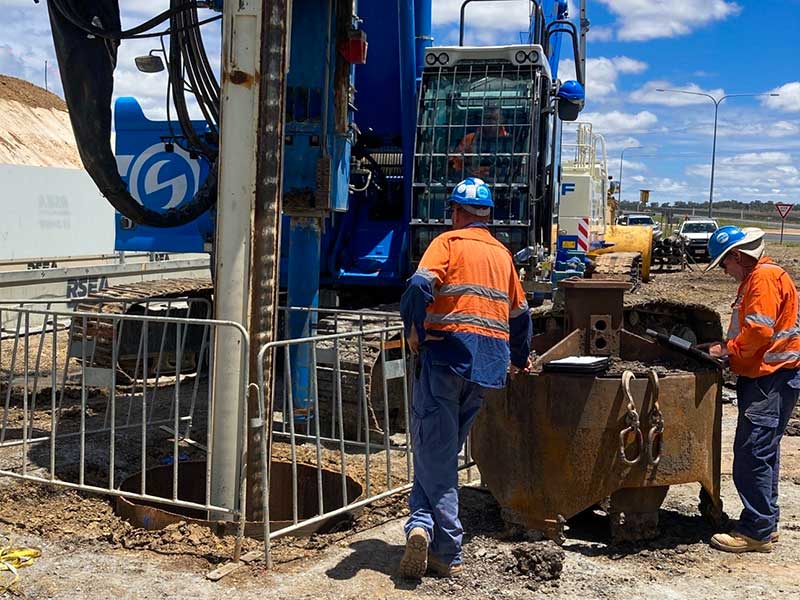
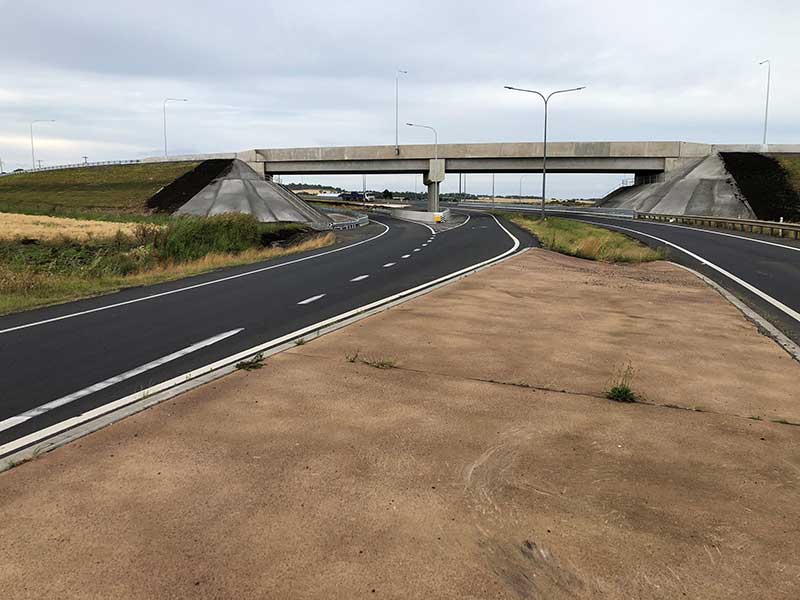
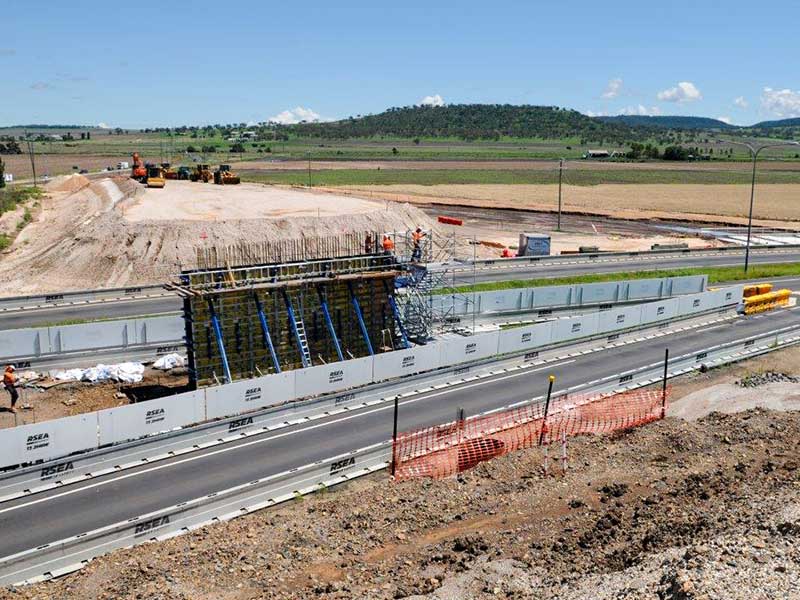
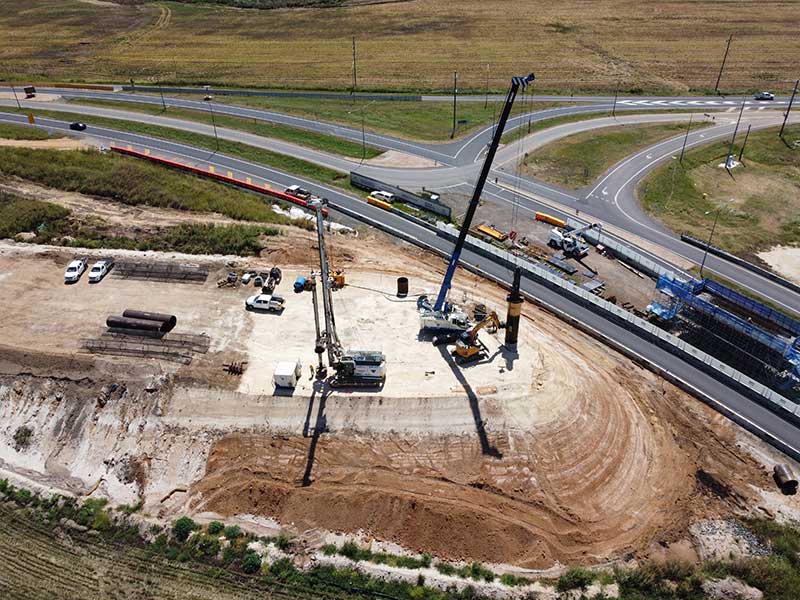
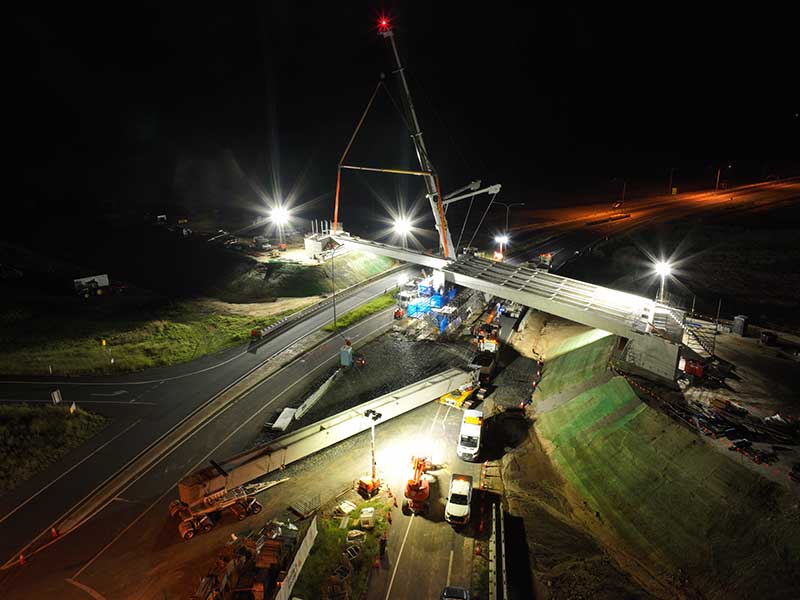
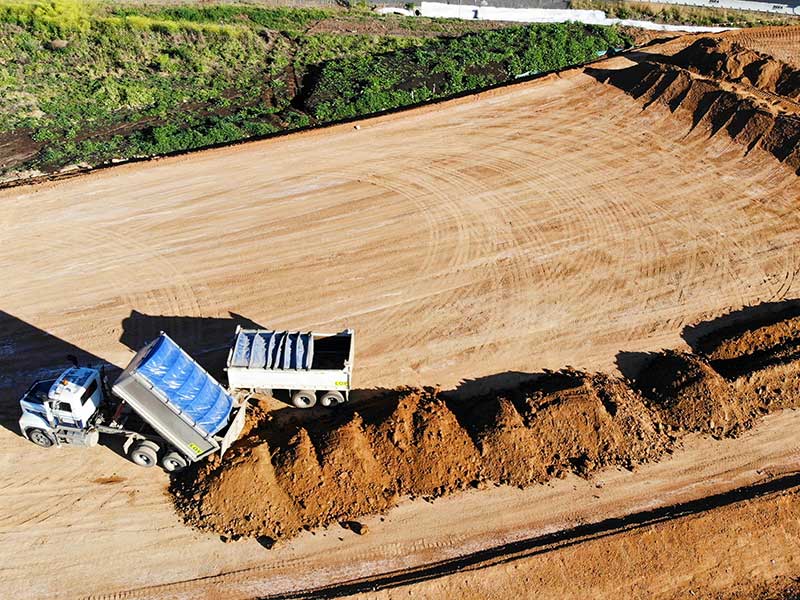
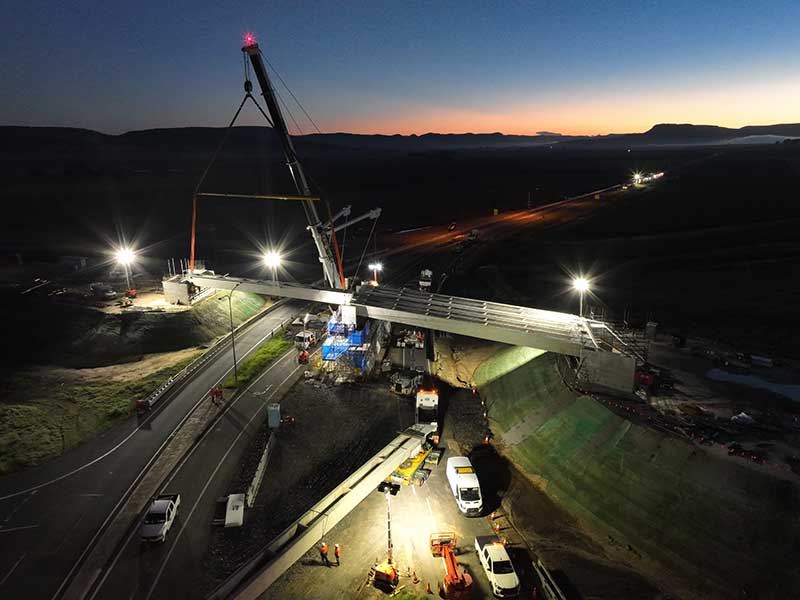
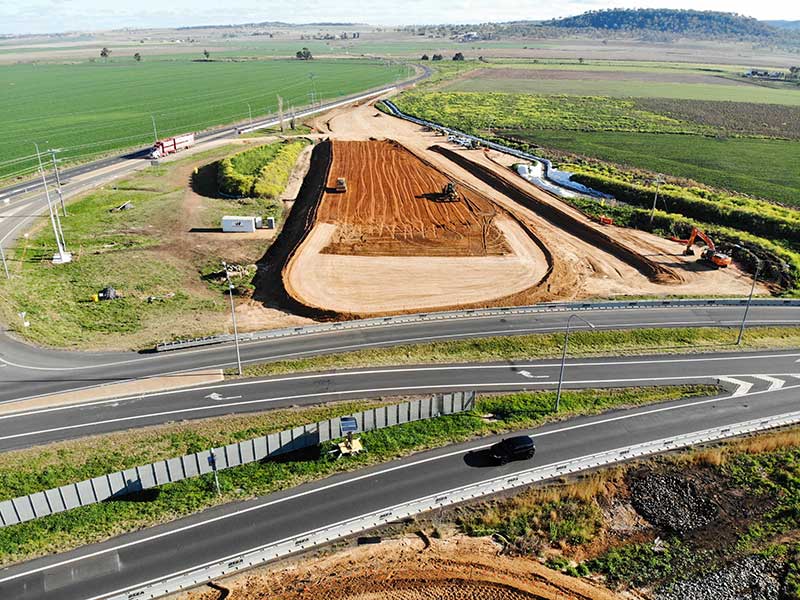
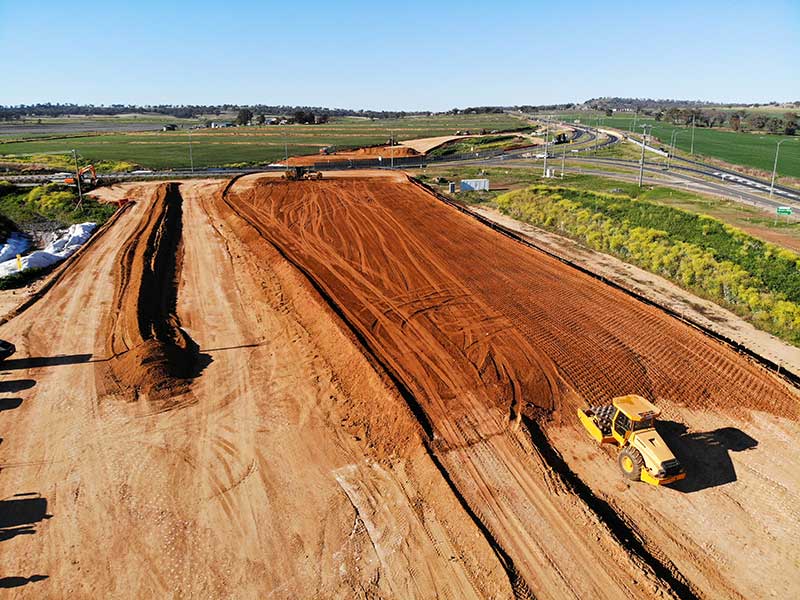
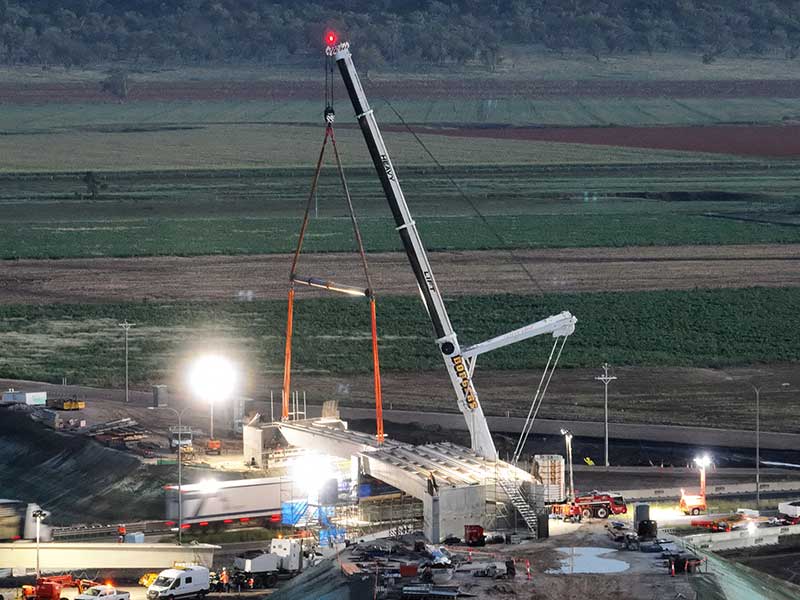
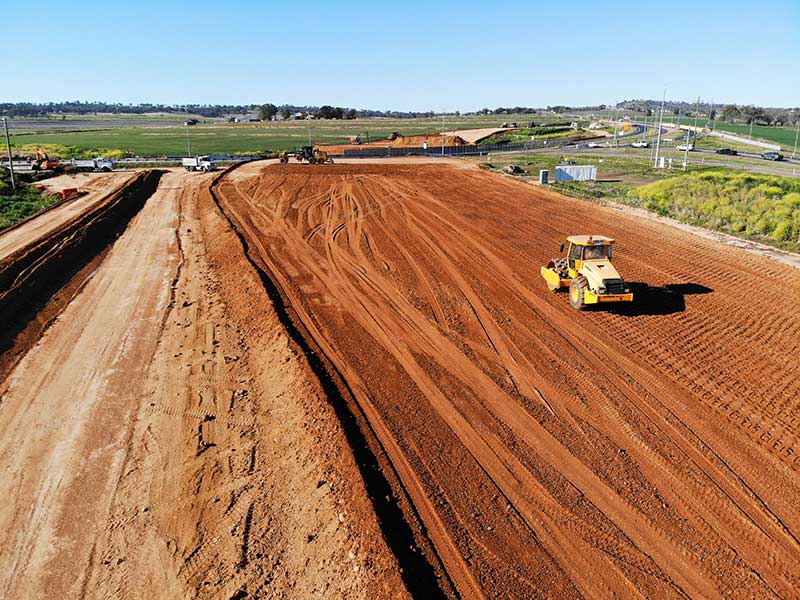
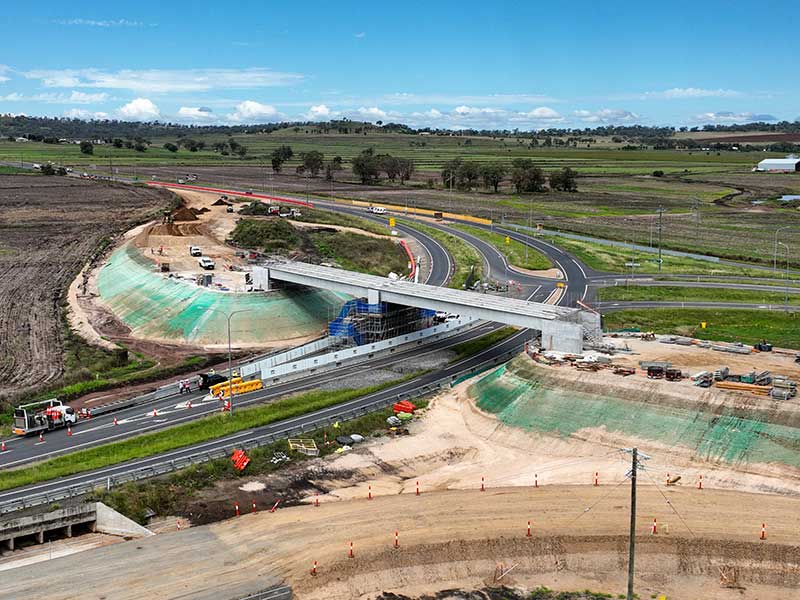
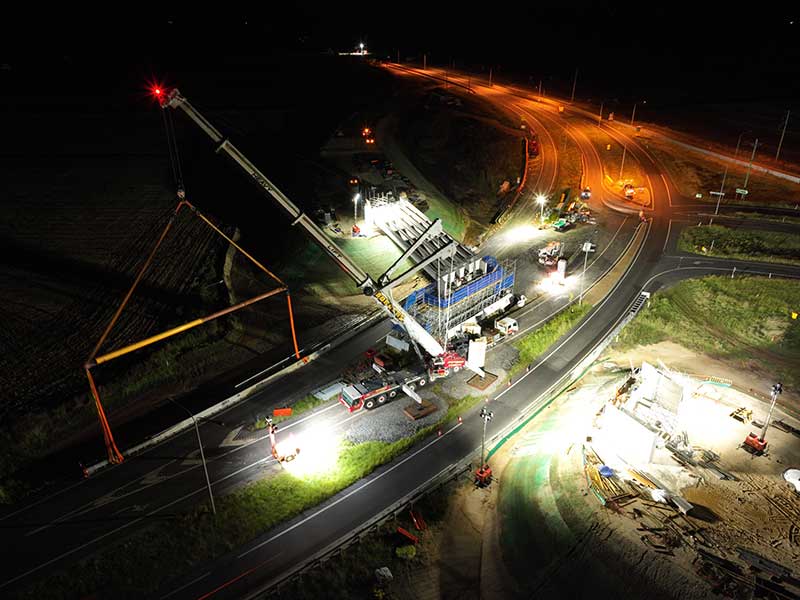
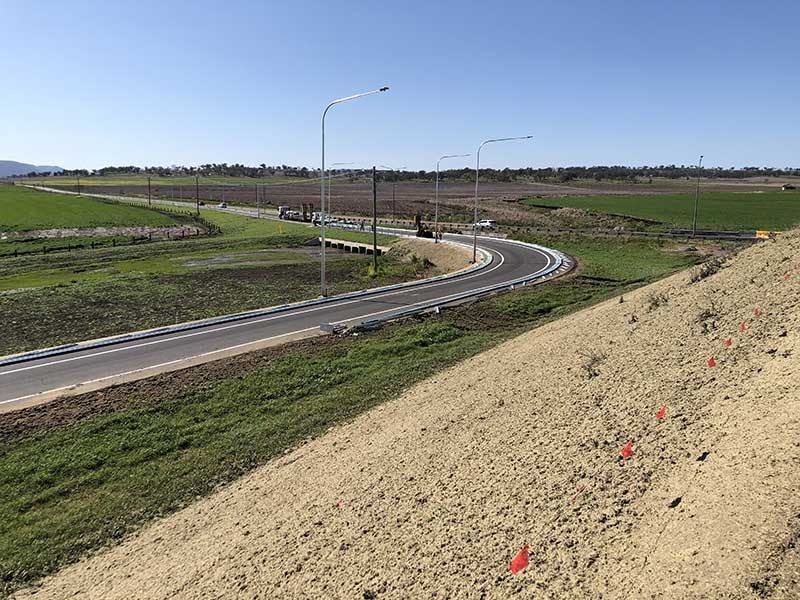
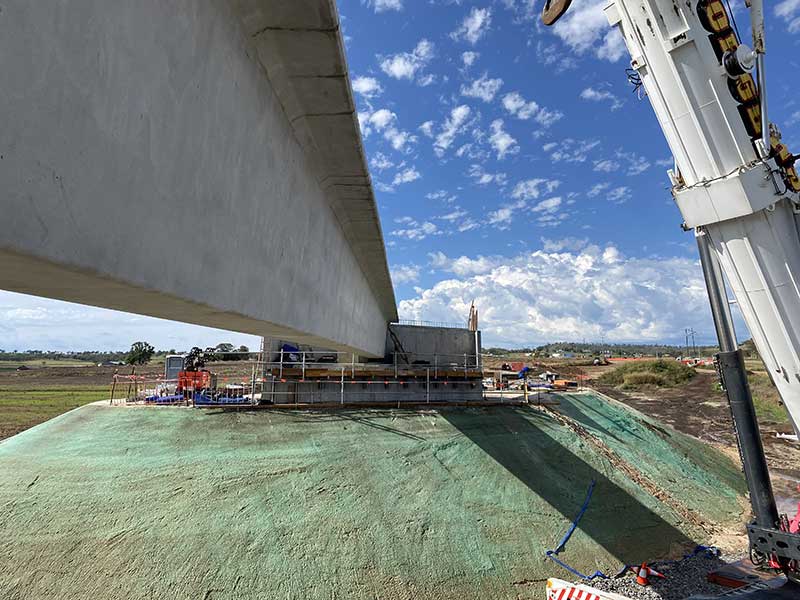
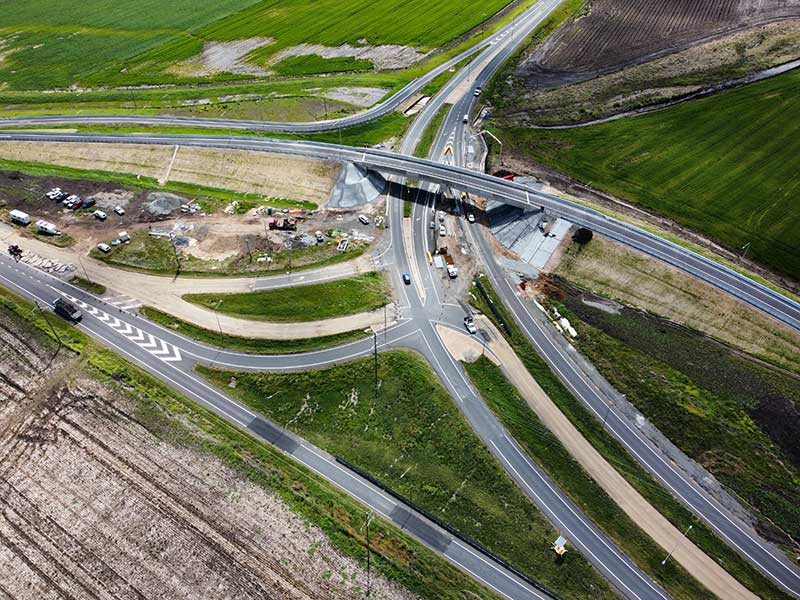

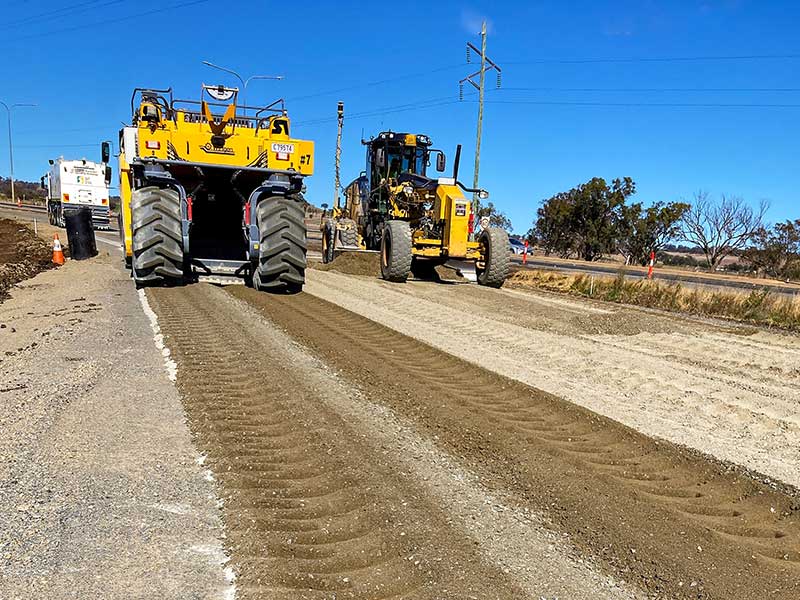
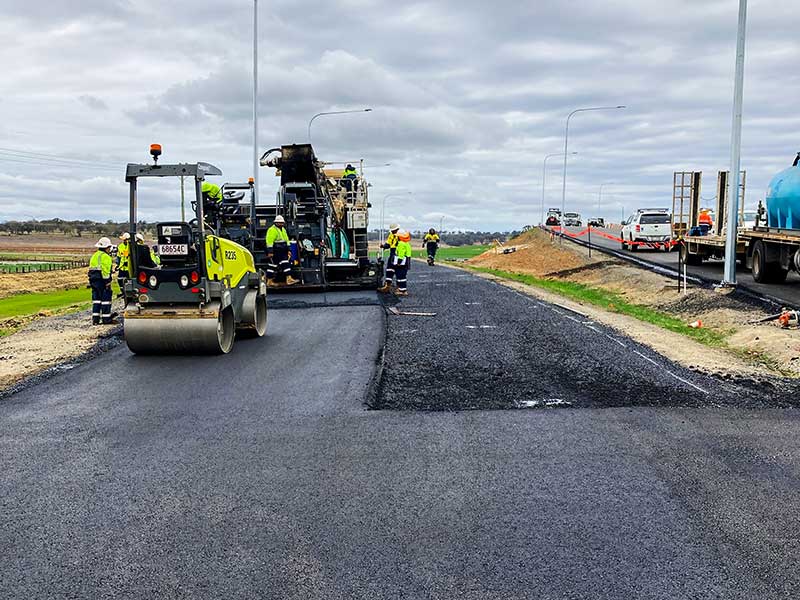
Project Outcomes and Performance
Social
Workforce Development and Skills Enhancement
The project enabled team members, particularly those experienced in bridge works, to broaden their skills in earthworks, drainage, and pavement construction, fostering valuable cross-disciplinary development. Collaboration with key subcontractor Joe Wagner Group further enhanced knowledge sharing. Additionally, an undergraduate engineer was employed during his final study years, gaining practical on-the-job experience. The project also supported workforce development with seven apprentices and trainees, including Civforce Traffic Control staff undertaking Certificate III qualifications in Civil Construction Traffic Management and Driving Operations. The project exceeded targets for new entrant and trainee hours, demonstrating a strong commitment to social procurement and long-term stakeholder value.
Exceeding Indigenous Participation and Engagement Targets
The project exceeded its Indigenous participation and employment targets, achieving 6.0% participation against a 4.0% target and 2.7% employment engagement versus a 1% goal. Labour hours reached 1,240, significantly above the 469-hour target. Supplier engagement surpassed the 3.0% target at 3.3%, while Indigenous business spend exceeded expectations at $506,913 compared to the $469,800 target. This success was supported by engaging Indigenous organisations including KTES Karamatic Training and Employment, First People (Partners on Country), Joe Wagner Group, and Borger Crane Hire.
Economic
Local Industry Engagement and Regional Economic Support
Located between Warwick and Toowoomba, the project created strong opportunities for local industry participation. JF Hull engaged multiple Southern and Darling Downs businesses, supporting regional employment and building industry capability. Subcontractors and suppliers from Toowoomba and Warwick delivered key services including survey, earthworks, concrete, cleaning, and equipment hire. Key local partnerships included Minstaff Survey (Toowoomba), whose performance led to re-engagement on future projects such as Inland Rail Early Works, and Joe Wagner Group, who sourced fill from local Southern Downs quarries. Warwick-based suppliers such as Warwick Cleaning Services, East Side Hire, F.G. Loy & Sons, and Bellingham & Co provided essential support services. The project also helped develop emerging contractors like Niland Group, who delivered concrete and formwork works, contributing to their growth and creating employment for local personnel.
Health, Safety & Environment
Native Plant Protection and Regeneration
A protection plan was implemented for the vulnerable native plant Picris evae (Hawkweed), listed under state and federal legislation. Known plant locations were preserved onsite or, where necessary, carefully transferred offsite and temporarily stockpiled before being replanted during project completion. Seed-rich topsoil was also stockpiled and re-spread, supporting successful Hawkweed regeneration.
Community & Customer
Collaborative Response to Flood-Related Traffic Disruption
During girder installation in March 2022, severe flooding in northern New South Wales triggered an unplanned diversion of high volumes of heavy freight traffic, particularly B-double long-haul trucks, through the project site. This sudden influx of high-mass vehicles significantly increased safety risks and operational pressures at a critical stage of construction.
In response, the project team acted swiftly and collaboratively, mobilising additional traffic control resources and enhancing coordination with traffic management crews. These efforts ensured the safe flow of diverted freight while protecting workers and minimising disruption to the broader community. The team’s proactive, adaptive approach developed in real time enabled construction to continue safely despite the extraordinary circumstances.
This effective response not only demonstrated strong leadership and planning under pressure but also reinforced the team’s commitment to public safety and construction continuity during an unforeseen and high-risk event.
Transparent Communication with the Department of Transport and Main Roads
The project team maintained a strong and open working relationship with the Department of Transport and Main Roads (TMR) throughout delivery. Regular updates were provided to TMR, along with the timely sharing of documentation and active participation in joint problem-solving to address issues as they arose.
This collaboration included working closely with TMR to confirm business classifications for accurate social procurement reporting. The team also coordinated regularly with TMR to monitor and report on Indigenous participation, ensuring targets were met in line with the approved Indigenous Participation Plan.
This transparent, cooperative approach supported effective project delivery and helped ensure compliance with TMR’s expectations and broader government priorities.
Proactive Community Engagement and Communication
The project team took a proactive approach to community engagement, providing weekly consultation reports to TMR’s Community Manager and onsite staff. These reports outlined key activities, community concerns, and any incidents, keeping TMR well-informed and responsive.
To support direct engagement, Leisa Prowse Consulting was engaged to provide a dedicated Community Liaison Officer, ensuring timely, personal communication with residents, businesses, and road users. A project mobile number was also established to handle public enquiries and maintain open communication throughout delivery.
These measures helped build trust, resolve issues early, and minimise community disruption.
“JF Hull have faced some challenges in terms of inclement weather and changing economic conditions. The team have worked through these scenarios and issues as they have encountered.”
Paul Weiss (Administrator – Department of Transport and Main Roads)
